The 15th edition of the Dasra Philanthropy Week, saw a convergence of diverse stakeholders from the social impact ecosystem, anchored around the theme of ‘Thrive through Equity’. With a focus on gender, equity, diversity and inclusion, and a commitment to thrive through equity, the event created a space for thought-provoking conversations and diverse voices from every corner of India.
“The nonprofit sector today stands as the cornerstone of civil society in India,” asserted Nisaba Godrej, Executive Chairperson of Godrej Consumer Products, as she inaugurated the plenary sessions on February 29th, 2024. Amidst myriad challenges such as limited foreign funding and organisational capacity constraints, coupled with the increasing need for sustainable impact, Dasra Philanthropy Week 2024 aspires to foster a collective perspective to shape the future of India. Suparna Gupta, Chairperson of Dasra, highlighted the organisation’s 25-year journey in the impact ecosystem, underscoring the four pillars that are poised to steer the future of the development ecosystem: ‘Collaborative Platform, India for the World, Accelerating Social Change, and #Thrive through Equity’.
Empowering Women Leaders through the Women Lead – India Alliance
The first plenary discussion of the day commenced with a session led by Shailja Mehta, Associate Director at Dasra, shedding light on the status of gender equity in India. Despite India’s remarkable economic progress over the last decade, characterised by a notable reduction in extreme poverty and a 7% increase in GDP, the nation still grapples with significant gender disparities. This is evidenced by examples such as the high rate of women dropping out of the labour market, which is higher than almost anywhere else in the world by only one country.
Further examination of the issue reveals a prominent obstacle: the scarcity of women in leadership roles within the country. Shailja emphasised that in India, women’s leadership remains more of an exception than a norm, as demonstrated by Dasra’s 2023 research findings indicating that women occupy a mere 4.7% of Chief Executive Officer positions. To address this disparity, a proposed solution is the adoption of a framework termed ‘crossing the chasm,’ which highlights the systemic challenges hindering the mainstreaming of women in leadership across various sectors, including organisations, businesses, policies, families, and society at large.
In a concerted effort to advance gender equity in India, Dasra announced the launch of the Women Lead – India Alliance, aimed at synergising efforts across diverse sectors and organisations to expedite progress towards Sustainable Development Goal 5. Following the launch, a panel discussion unfolded, spotlighting the journeys of three distinguished women leaders spanning business, philanthropy, and social impact: Tara Vachani, Managing Trustee at Max India Foundation; Reshma Anand, Regional Director at Ford Foundation; and Sonal Kapoor, Founder and Board Member of Protsahan India Foundation.
During the discussion, Tara Vachani emphasised the importance of assertiveness and openness in articulating one’s desires and thoughts, drawing from her own experiences as a woman leader in the business sector. Reshma Anand echoed this sentiment, highlighting the significance of cultivating alliances, particularly for women leaders navigating their career trajectories. The conversation then delved into gender-intentional funding strategies, with Reshma outlining Ford Foundation’s approach, which prioritises investing in institutional development and fostering policies that promote gender representation. She also underscored the necessity of sustained support for gender-focused interventions to yield tangible results on the ground.
Sonal Kapoor contributed insights from her grassroots experiences, emphasising the need to recognize gender intersections and address systemic accountability. She advocated for creating an enabling environment to nurture women-led initiatives at the community level. Concluding the discussion, Sonal emphasised the importance of balancing strategic frameworks and data-driven decision-making with the documentation of ground-level stories and anecdotes. This holistic approach, she suggested, ensures alignment with overarching objectives and a comprehensive understanding of the broader context.
Urban Alchemy: Strategies for Inclusive Development Amidst Rapid Urbanization
The second panel discussion, moderated by Smruti Koppikar, a journalist at Urban Chronicler, centred on urban development challenges in India amidst rapid urbanisation. The panel consisted of Sameer Shisodia, CEO at Rainmatter Foundation; Pratima Joshi, Founder-Executive Director at Shelter Associates; and Mangesh Valve, General Manager at Blue Star Limited.
Highlighting the lack of inclusivity in infrastructure, Smruti underscored the need for comprehensive urban planning strategies to kick off the discussion. Addressing the issue, Sameer Shisodia pinpointed a critical flaw in the urban development landscape, where the focus tends to be predominantly on replicating models from established cities onto tier II cities and towns. He called upon citizens to take ownership and actively participate in the design of urban spaces to foster inclusivity.
Discussing the gap in basic system structures, Pratima Joshi emphasised the dearth of data, particularly concerning the economically disadvantaged. She advocated for a data-driven, community-centric approach to sanitation and urban development, echoing Sameer’s call for community involvement beyond mere beneficiary roles. Drawing from his manufacturing sector background, Mangesh Valve highlighted the necessity of providing essential benefits to workers, such as fair wages and ensuring workplace safety. He emphasised the importance of inclusive public infrastructure to facilitate access to employment opportunities for informal workers, applauding governmental initiatives like the e-Shram portal for streamlining data on informal labour.
Sameer reiterated the significance of tailor-made urban planning approaches tailored to the unique needs of each geographical area, while Pratima stressed the importance of data-driven solutions tailored to urban development challenges and emphasised the need for digital connectivity to empower the urban poor. Smruti underscored the imperative of embedding sustainability and ecological considerations into urban development initiatives from the planning stage, rather than treating them as a mere afterthought.
From Frontier to Front: Empowering local communities in North East India
The third panel discussion of the day delved into North East India, shedding light on some of the unique challenges encountered in the region, along with the need to strengthen outreach and funding. Often less discussed than other states and regions in the country, and even less understood, the discussion was initiated with the display of a map highlighting the names of the states within the North-East region. Deep Jyoti, Co-Founder and Chairman of Farm2Food Foundation, kickstarted the discussion by pointing out that while 84% of the population resides in rural areas, there is a need to further strengthen income from agriculture and farming. Furthermore, emphasising the need for capacity building and enabling community ownership, Shaifalika, Trustee and Founder CEO of Bansidhar Ila Panda Foundation, introduced an inclusive lens by discussing Project Unnati, which works with women and children in the North East. She emphasised the importance of community-driven action by implementing agencies to bring about long-term change on the ground.
While discussing the allocation of CSR funding to the North East, Adam Khorakiwala, Head of Corporate Development at Switz Group, shared that the geographical presence of business operations was a key factor. However, in contrast to interventions conducted in Mumbai, the social impact generated by interventions in the northeast is significantly higher within a given focus area. Additionally, bringing in a GEDI (Gender, Equality, Diversity, and Inclusion) lens, Avinaba, Executive Team Member of the Karna Subarna Society, highlighted the stigma, bullying, and various other challenges faced by the LGBTQIA+ community, despite the legalisation of same-sex relationships. While this remains a challenge across the country, the situation is much worse for marginalised northeast communities.
The panel discussion concluded by reiterating the importance of community-driven solutions and increasing collaborations, as emphasised by Deep and Shaifalika. Adam advocated for patient, long-term investments to yield higher returns, while also echoing the need for collaboration and the sharing of best practices. In closing, Avinaba emphasised the need for flexible funding for the LGBTQIA+ community and the necessity of data to deploy effective solutions.
Neglected Realms: Exploring Solutions for Underserved Areas
The subsequent panel discussion, moderated by Sandeep Rai, Founder of Circle India, spotlighted underserved areas within the development ecosystem. Approaching the topic thematically, Shailja Mehta suggested a holistic view of the ecosystem, stressing the need to address neglected aspects even within well-funded areas. She emphasised the importance of considering education and health in tandem rather than in isolation. Vasvi Bharat Ram, Founding Trustee of India Mental Health Alliance, underscored the universal relevance of mental health across sectors and advocated for capacity-building efforts at an ecosystem level.
Parag Agarwal, Founder of India Animal Fund, introduced another thematic lens focusing on animal welfare. He discussed the challenges hindering a systemic approach to underserved areas, including existing stereotypes and limited awareness. Nalini Tarkeshwar, Head of Programs and MEL at UBS Optimus Foundation, emphasised the importance of innovative funding approaches in underserved areas, advocating for collective action, catalytic philanthropy, and a systems lens approach to invest in long-term, patient, and non-linear capital.
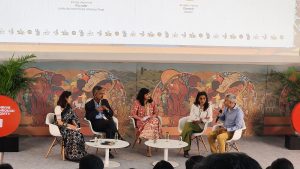 Parag also emphasised the need to engage key stakeholders and attract passionate talent to drive ecosystem-level solutions. Shailja echoed this sentiment, highlighting the importance of collaboration, evidence-building, talent acquisition, and effective communication to raise awareness and garner support. All panellists stressed the significance of adopting an ecosystem approach and identifying intersections and interrelatedness among various issues.
Parag also emphasised the need to engage key stakeholders and attract passionate talent to drive ecosystem-level solutions. Shailja echoed this sentiment, highlighting the importance of collaboration, evidence-building, talent acquisition, and effective communication to raise awareness and garner support. All panellists stressed the significance of adopting an ecosystem approach and identifying intersections and interrelatedness among various issues.
To underscore the importance of supporting underserved areas, Parag invoked the law of minimum, asserting that achieving transformation requires addressing all segments. The discussion concluded with panellists sharing their final takeaways, with Shailja emphasising the need to focus on the problem rather than fixating on predetermined solutions to better understand community needs and donor priorities.
Launch of India Philanthropy Report and navigating the future
On the launch of the India Philanthropy Report, Dasra convened a group of diverse stakeholders to hold a panel discussion on the key highlights of the report and the way forward for philanthropy in India. While discussing the findings in the report, some of the major themes that emerged included the need for catalytic giving and taking bigger bets, strengthening and sustaining collaboratives, women leading the giving narrative in India, and building nonprofit capacity on fund absorption, and implementation. The discussion was kicked off by the moderator Shrutika Jadhav, Associate Director at Dasra, who asked all the panellists to share their ‘aha’ moments on the report.
Radha Goenka, Director of RPG Foundation, acknowledged the shift in thematic focus to emerging areas such as art and culture and appreciated how women are becoming more involved. Aparna Uppaluri, from Tata Trusts echoed the significance of the increase in women givers, indicating a shift in power. Aarti Mohan from Sattva Consulting added to this by stating that this should also translate to more funding for women overall, similar to the increased funding towards climate action. She also emphasised the need to adopt a catalytic approach to CSR giving to establish and scale initiatives. Arnav Kapur from the Bill and Melinda Gates Foundation highlighted the increase in CSR compliance as an interesting trend and the 5x growth in collaboratives. He anticipates that philanthropy will shape the narrative of India’s social sector over the next decade. The discussion concluded with the panellists sharing their insights on the need to build philanthropic infrastructure, the importance of deploying patient capital across key sectors, and how CSR funding can be diversified by not only funding collaboratives but also capacity development across underserved areas.
India for the World and World for India
The plenary sessions for the day concluded with a panel discussion moderated by Neera Nundy, Co-Founder and Partner at Dasra, focusing on exploring India’s collective power to foster impactful solutions for the world. Ankur Vora, Chief Strategy Officer at Gates Foundation, expressed, “Despite tremendous progress, there’s much work ahead. Our discontent should fuel our drive to do more and do better. We must embrace dissatisfaction and use it as a catalyst for greater impact.” Rumana Hamied from Cipla Foundation concluded the day by stating that while there’s abundant innovation, there’s a need to showcase it to the world to attract capital, w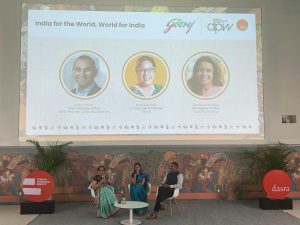 hile harnessing that capital for the betterment of those who’ve been left behind.
hile harnessing that capital for the betterment of those who’ve been left behind.
Aarti Mohan, is a Co-founder and Partner at Sattva Consulting. Aarti is also the Alliance Regional Representative for South Asia. Rini Jincy Paul is a Knowledge Specialist at Sattva Knowledge Institute and Lekhya Reddy leads the Capital for Impact (CFI) Practice Area at Sattva Knowledge Institute of Sattva Consulting.
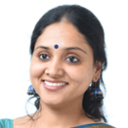



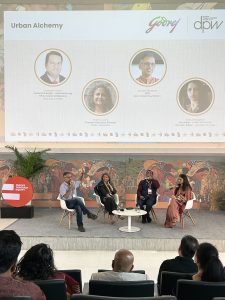
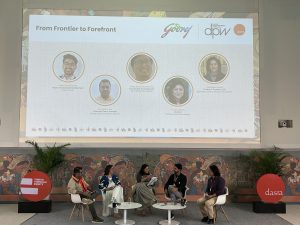

Comments (0)
This is what I wanna find. fnaf plus
This is what I wanna find.